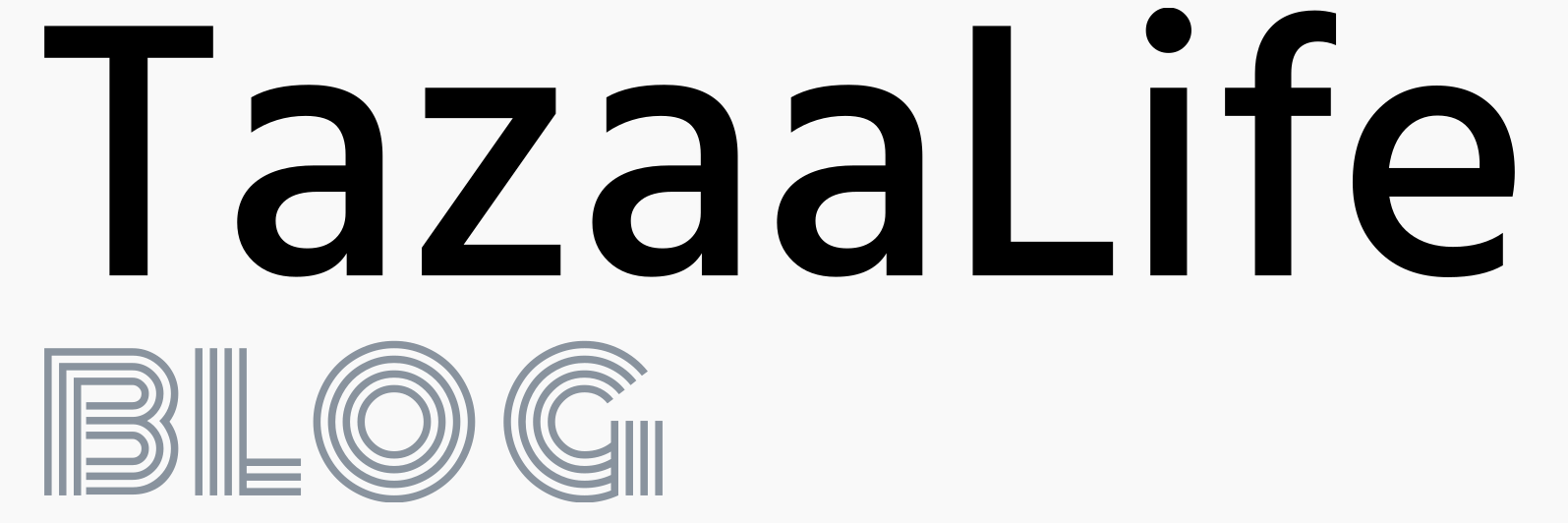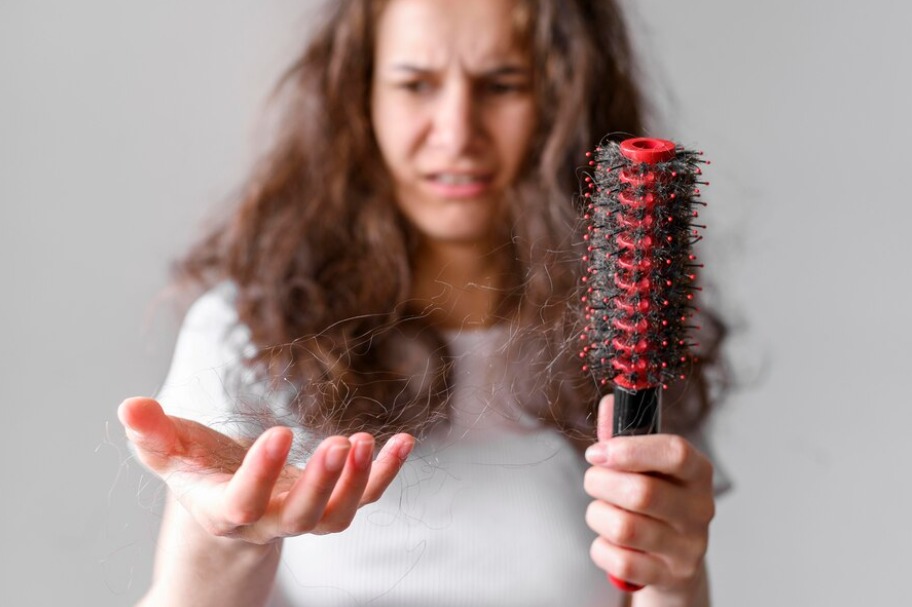Hair loss, also known as alopecia, can occur due to various reasons, and it’s a common concern for many people. Here are some reasons for why hair loss may occur:
Genetics hair loss: One of the most common reasons for hair loss is genetics. In your family if your parents have hair loss then definitely child will have hair loss.
Hormonal Changes: Hormonal changes can play a significant role in hair loss. For example, if you have too much stress can lead to hormonal changes and can cause hair to fall.
Medical Conditions: Certain medical conditions can cause hair loss, such as autoimmune diseases like alopecia areata, which causes patchy hair loss, and scalp infections like ringworm, which can lead to scaly patches and hair loss.
Medications and Treatments: Some medications and treatments can cause hair loss as a side effect. Chemotherapy, for instance, is well-known for causing hair loss, but other medications like those used for arthritis, depression, heart problems, and high blood pressure can also contribute to hair loss.
Nutritional Deficiencies: Inadequate intake of certain nutrients, such as iron, protein, vitamins (especially vitamin D and B vitamins), and minerals like zinc, can lead to hair loss. I suggest to known what minerals and vitamins deficiency you have and discuss it with healthcare professional for the right medication.
Stress: While acute stress is unlikely to cause hair loss, chronic stress can lead to hair shedding. Stress-induced hair loss is known as telogen effluvium, where a significant number of hair follicles shift into the resting phase prematurely.
Hair Care Practices: Overuse of hair treatments such as coloring, bleaching, perming, and using heated styling tools can damage the hair and lead to breakage and eventual loss.
Age: As people age, their hair naturally becomes thinner and may fall out more easily. This is often due to changes in hormone levels and the hair growth cycle.
It’s essential to consult a healthcare professional or a dermatologist if you’re experiencing significant hair loss to determine the root cause and find best possible solutions.
Solutions to stop hair fall:
Stopping hair fall completely can be challenging, as it often depends on the actual cause of the hair loss. However, here are some possible solutions that may help reduce or prevent hair fall:
Healthy Diet: Ensure you’re consuming a balanced diet rich in essential nutrients for hair health, such as protein, iron, vitamins (especially B vitamins and vitamin D), and minerals like zinc and biotin.
Avoid Tight Hairstyles: Minimize the use of hairstyles that pull on the hair follicles, such as tight ponytails, braids, or hair extensions, to prevent traction alopecia.
Manage Stress: Practice stress-reducing techniques such as meditation, yoga, deep breathing exercises, or any other activities that help you relax. Managing stress can help prevent stress-induced hair loss.
Medical Treatments: Depending on the underlying cause of hair loss, your doctor may recommend medical treatments such as minoxidil (Rogaine) or finasteride (Propecia) for male-pattern baldness, corticosteroid injections for alopecia areata, or hormone therapy for hormonal imbalances.
Scalp Care: Keep your scalp clean and healthy by washing it regularly with a gentle shampoo. Scalp conditions like dandruff can contribute to hair loss, so addressing these issues may help reduce hair fall.
Avoid Harsh Chemicals: Limit the use of harsh chemicals on your hair, such as hair dyes, bleaches, and chemical relaxers, as they can damage the hair shaft and contribute to breakage and hair loss.
Consult a Dermatologist: If you’re experiencing significant or persistent hair loss, consult a dermatologist or healthcare professional for proper diagnosis and personalized treatment recommendations.
How stress affect hair health:
Stress can have a significant impact on hair health and may contribute to hair loss through a condition known as telogen effluvium. Here’s how stress affects hair health:
Telogen Effluvium: Stressful events, whether physical or emotional, can disrupt the normal hair growth cycle. Normally, hair follicles go through a cycle of growth (anagen phase), transition (catagen phase), and resting (telogen phase) before shedding and regenerating. Stress can cause a larger number of hair follicles to prematurely enter the telogen (resting) phase. This leads to an increased shedding of hair, resulting in noticeable hair thinning or loss. Telogen effluvium typically occurs around two to three months after a stressful event and can persist for several months before hair growth resumes.
Hormonal Changes: Stress triggers the release of stress hormones like cortisol and adrenaline, which can disrupt the balance of other hormones in the body. Fluctuations in hormones increased levels of cortisol, can affect the hair growth cycle and contribute to hair loss. Chronic stress may also lead to hormonal imbalances that can cause hair loss.
Impaired Blood Circulation: Stress can constrict blood vessels and reduce blood flow to the scalp, as a result essential nutrients and proper oxygen can’t reach to scalp. Poor blood circulation to the scalp can weaken the hair follicles, leading to hair thinning and loss over time.
Compulsive Hair Pulling: In some cases, stress can manifest as a psychological condition called trichotillomania, where individuals feel compelled to pull out their hair, leading to noticeable hair loss and bald patches.
Scalp Conditions: Stress can exacerbate certain scalp conditions like dandruff or seborrheic dermatitis, which can contribute to hair loss. Additionally, scratching the scalp due to stress-induced itching can damage the hair follicles and lead to further hair loss.
Reduced Self-care: During times of stress, people may neglect their self-care routines, including proper nutrition and hair care practices.
Overall, while stress alone may not directly cause permanent hair loss, chronic or severe stress can contribute to hair thinning and shedding by disrupting the hair growth cycle, altering hormone levels, impairing blood circulation to the scalp can cause hair to fall. Managing stress through relaxation techniques, regular exercise, proper sleep, and seeking support from mental health professionals can help mitigate its impact on hair health.
Managing stress effectively can help preserve hair health and reduce the risk of hair loss.
Here are some strategies to save your hair by managing stress:

Stress Reduction Techniques: Incorporate stress reduction techniques into your daily routine, such as meditation, deep breathing exercises, progressive muscle relaxation, yoga. These practices can help calm the mind and body, reduce cortisol levels, and promote relaxation.
Regular Exercise: Engage in regular physical activity, such as walking, cycling, or swimming help in reducing stress and proper blood circulation in the body.
Healthy Lifestyle Choices: Maintain a healthy lifestyle by prioritizing adequate sleep, balanced nutrition, and hydration.
Social Support: Seek support from friends, family members, or support groups during times of stress. Sharing your feelings and experiences with others can provide emotional support, can help reduce stress.
Professional Help: If you’re struggling to manage stress on your own, consider seeking support from a mental health professional, such as a therapist or counselor. They can provide guidance, coping strategies, and therapeutic interventions tailored to your individual needs.
Healthy diet: While there’s no “perfect” diet to completely stop hair fall, consuming a well-balanced diet rich in essential nutrients can support overall hair health and minimize hair loss.
Following are the essential nutrients and foods that help you grow hair back:

Protein: protein is very important part of our diet. Our hairs are also made up of protein called keratin. So, include protein rich foods like paneer, soya chunks, eggs, nuts and seed to your diet in order to fulfill protein requirements.
Iron: Iron deficiency can contribute to hair loss, so include iron-rich foods in your diet such as lean red meat, poultry, fish, beans, lentils, tofu, spinach, and other leafy greens.
Omega-3 Fatty Acids: Omega-3 fatty acids help nourish the hair follicles and support healthy hair growth. Include sources such as fatty fish (salmon, mackerel, sardines), flaxseeds, chia seeds, walnuts, and soybeans.
Vitamin A: Vitamin A helps produce sebum, which moisturizes the scalp and keeps hair healthy. Include foods rich in vitamin A, such as sweet potatoes, carrots, spinach, kale, and other orange and green vegetables.
Vitamin C: Vitamin C is an antioxidant that helps protect hair follicles from damage and supports collagen production, which is essential for hair strength. Include foods like orange, lemon.
Vitamin E: Vitamin E helps improve blood circulation to the scalp and supports hair growth. Include different types of nuts such as almonds sunflower seeds, pumpkin seeds.
Biotin (Vitamin B7): Biotin is essential for healthy hair growth and may help prevent hair loss. Eat foods like eggs, nuts, seeds and whole grains can promote hair growth.
Zinc: Zinc deficiency has been linked to hair loss, so include zinc-rich foods in your diet such as beef, lamb, pumpkin seeds, lentils, chickpeas, and fortified cereals.
Water: Stay hydrated by drinking plenty of water throughout the day. Hydration is essential for maintaining scalp health and promoting healthy hair growth.
Green Tea: Green tea contains antioxidants that may help promote hair growth and prevent hair loss. Consider incorporating green tea into your diet as a beverage or using it as a hair rinse.
Conclusion:
Understanding the reasons of hair fall and find a best solution to it is a perfect way to stop hair fall. But the major reason of hair fall is stress, once in a while is okay but chronic stress can disturb the normal growth cycle of the hair and it initially start affecting your hair. And in long term can cause major problem. It is important to manage stress immediately in order to regrow hair. Identify sources of stress in your life and take steps to minimize or eliminate them whenever possible. Saying no to additional responsibilities or seeking professional help to address underlying issues contributing to stress.
Frequently asked question-
Is it normal to lose hair every day?
Yes, it's normal to lose about 50-100 hairs per day as part of the natural hair growth cycle.
Can hair loss be reversed?
It depends on the cause. Some types of hair loss, such as pattern baldness, may not be reversible, but treatments can slow down the process or stimulate regrowth in some cases.
Will wearing a hat or helmet cause hair loss?
No, wearing a hat or helmet doesn't typically cause hair loss. However, if it's too tight, it may cause breakage around the hairline.
Are there any natural remedies for hair loss?
Some natural remedies like rosemary oil, coconut oil, and onion juice have been shown to promote hair growth, but their effectiveness varies, and scientific evidence is limited.
Can hair loss be prevented?
While you can't always prevent hair loss, maintaining a healthy lifestyle, avoiding damaging hair practices, and managing underlying health conditions can help minimize it.

